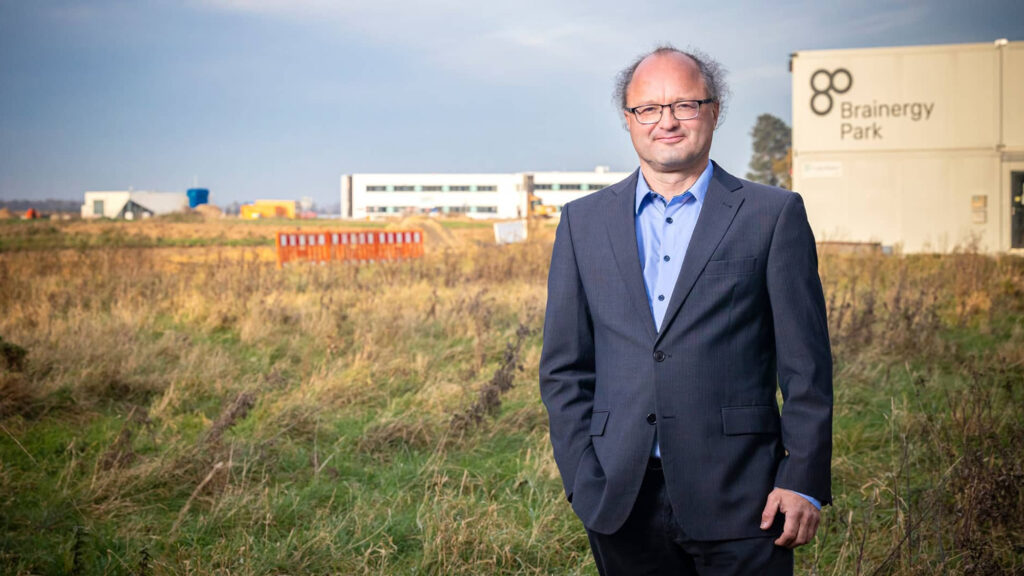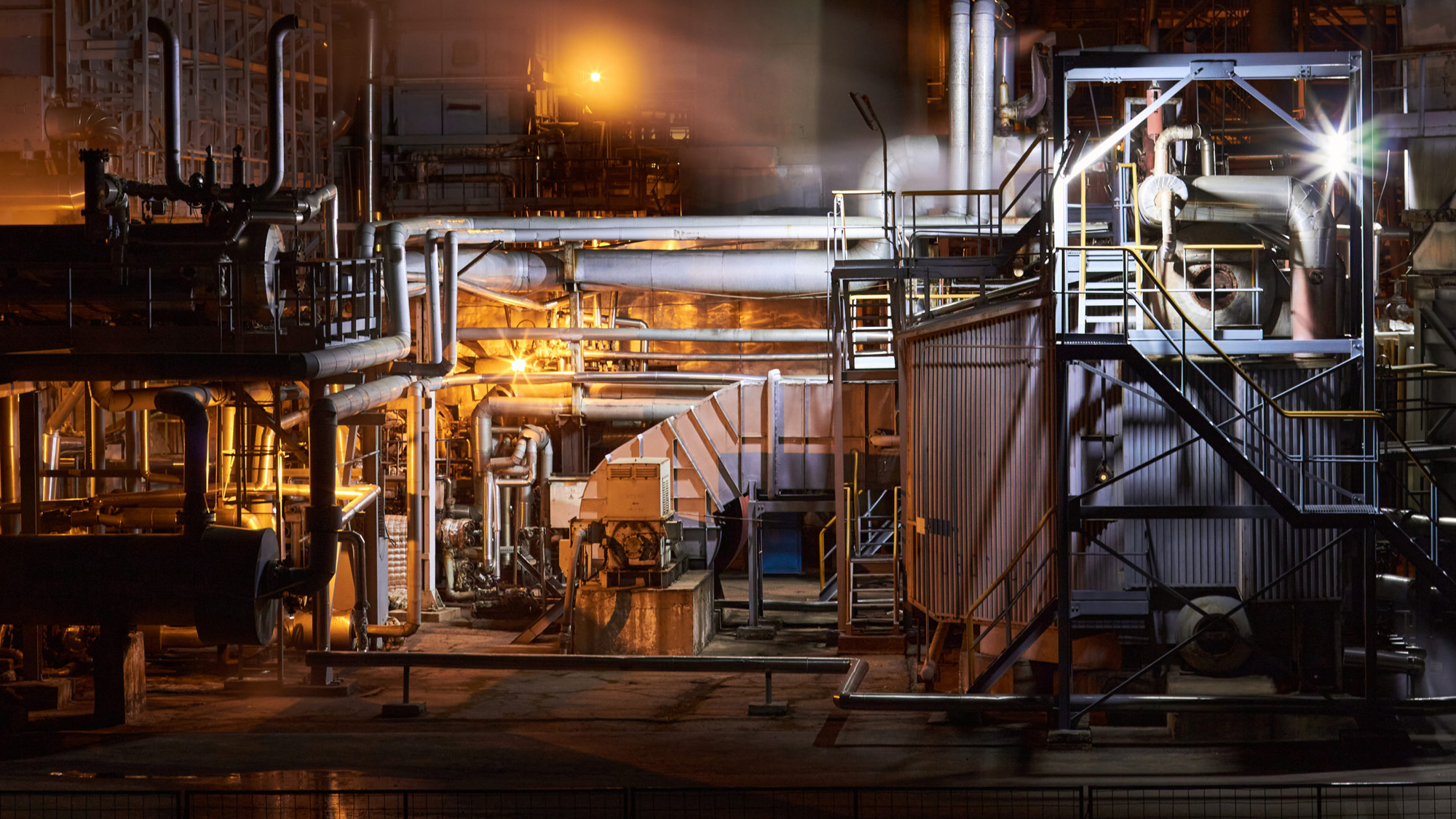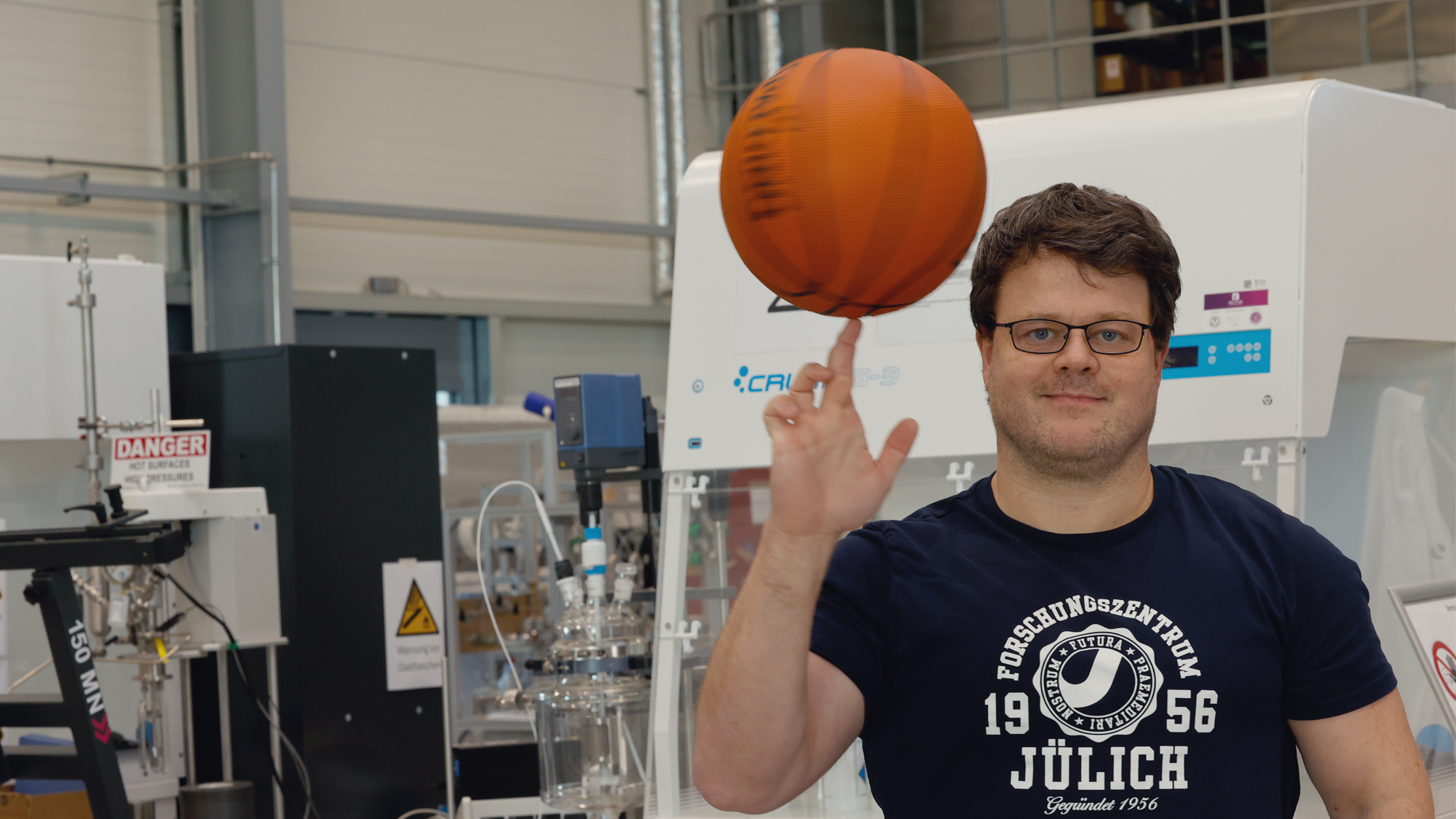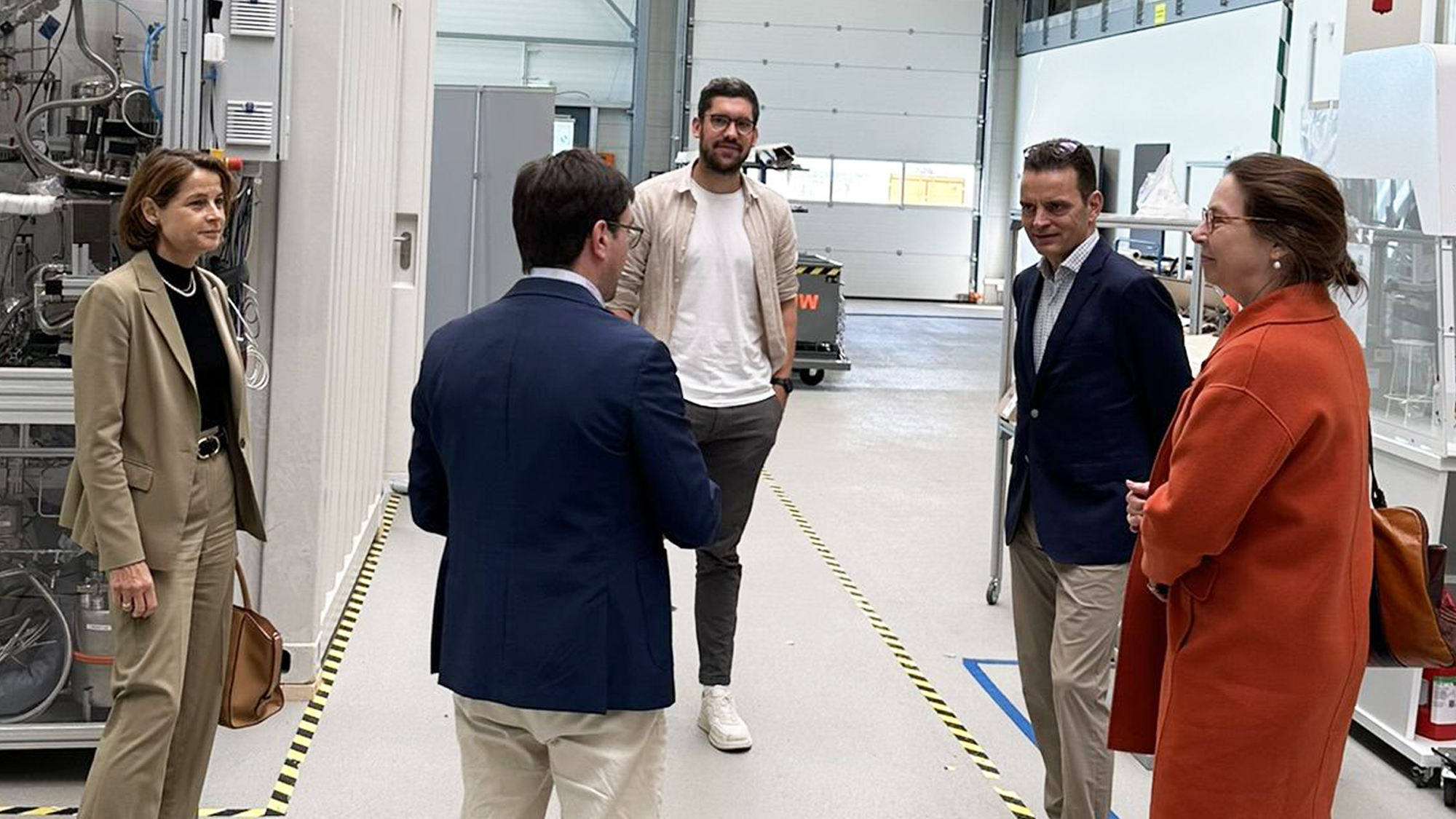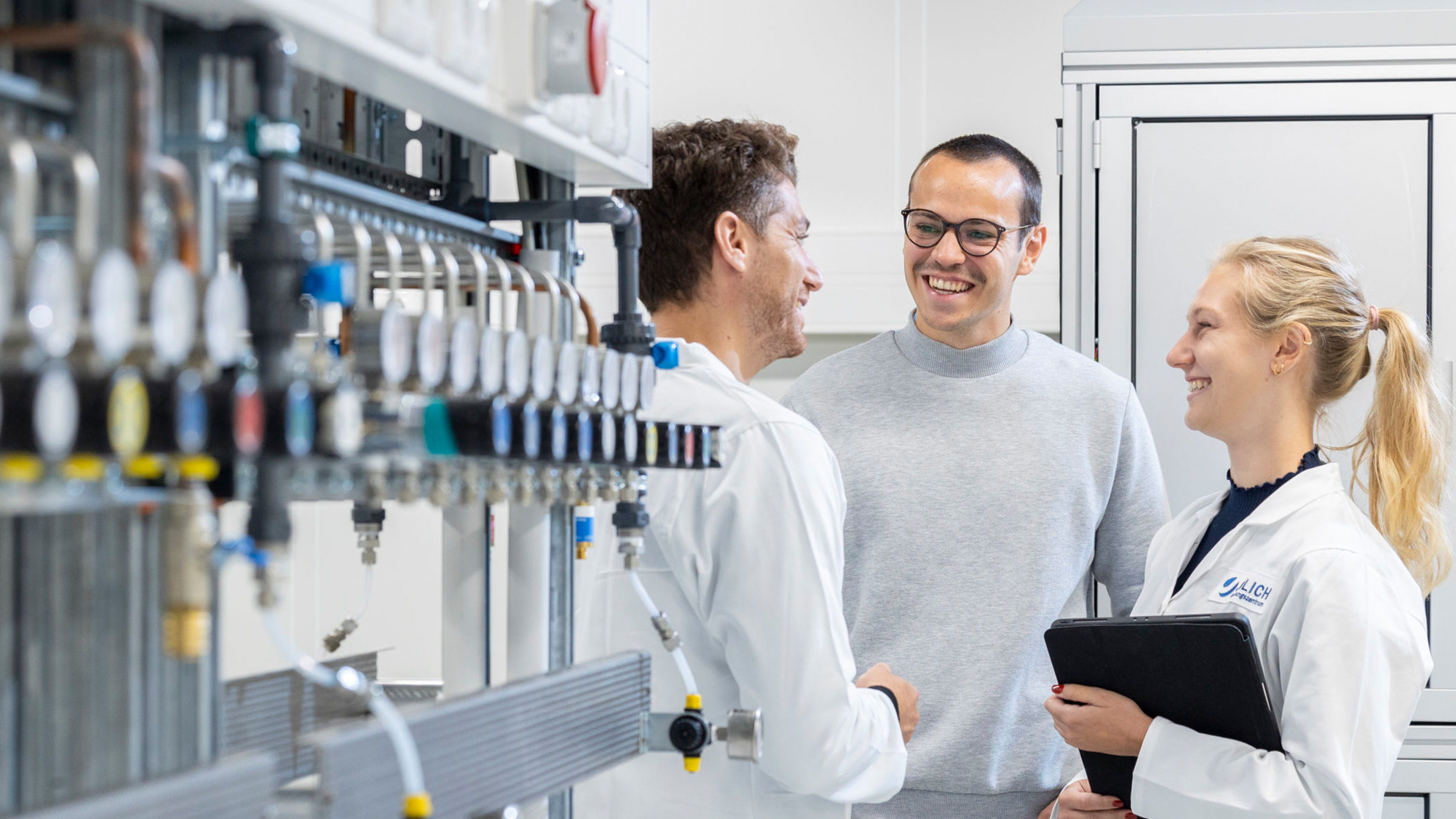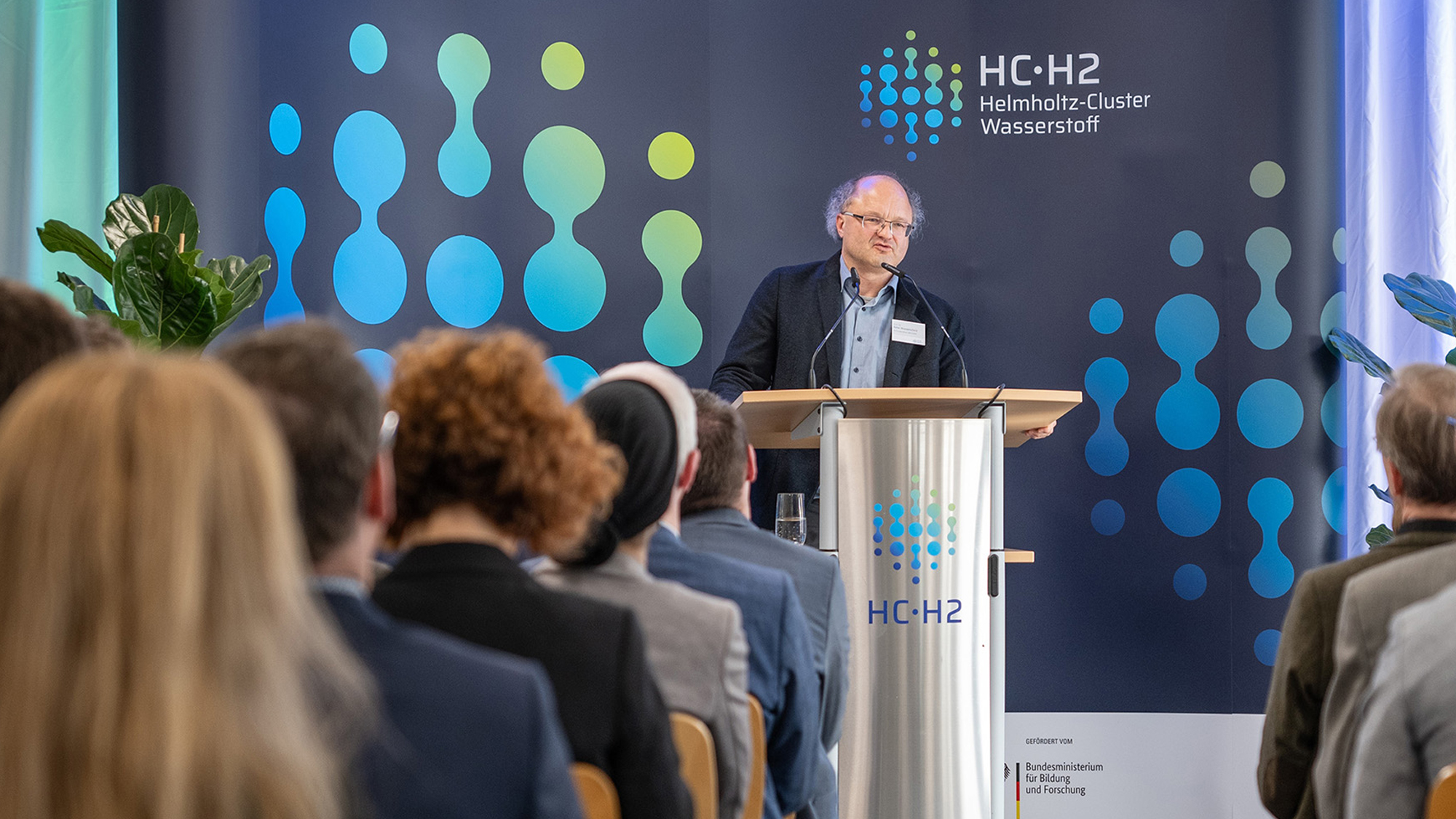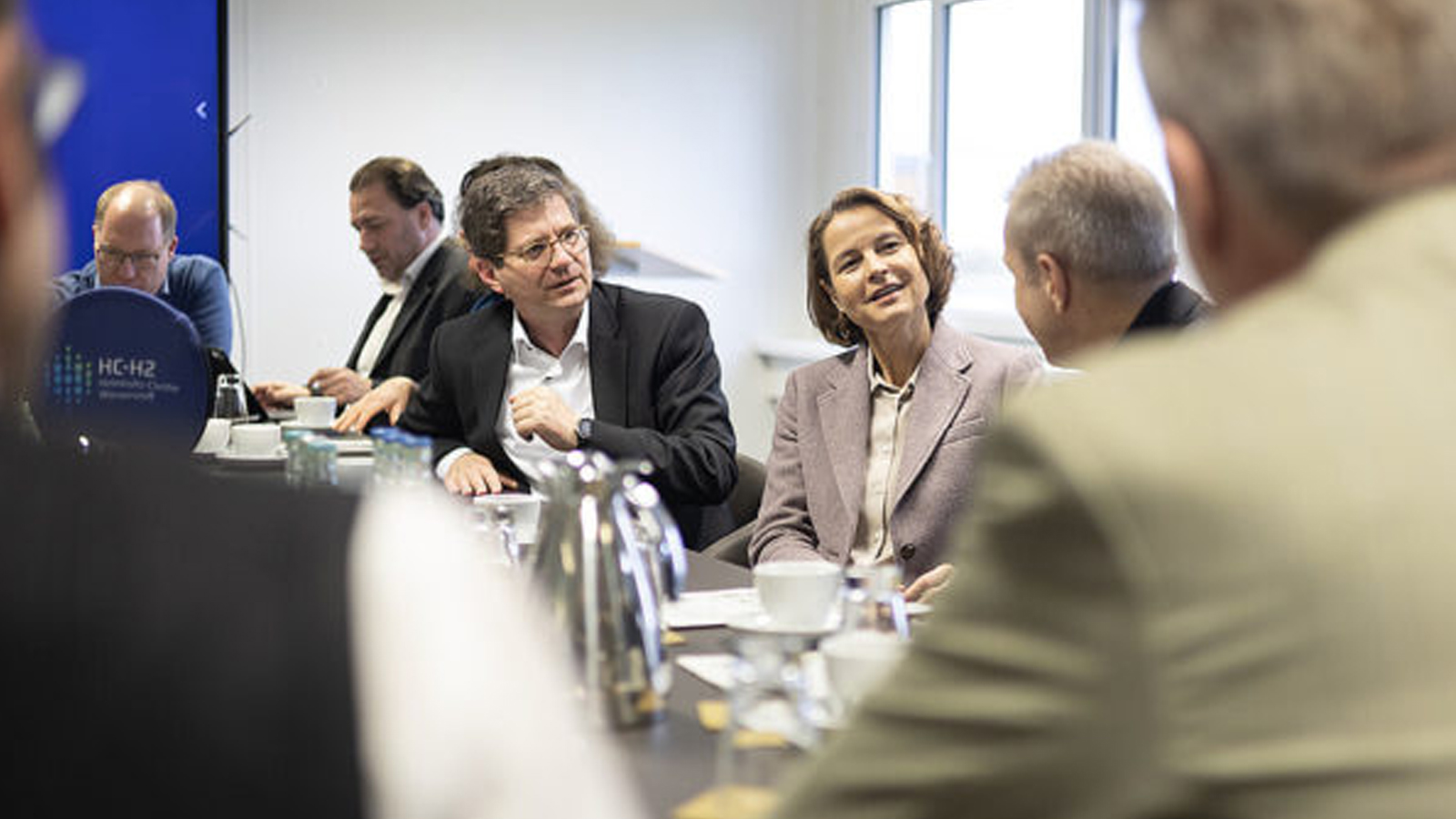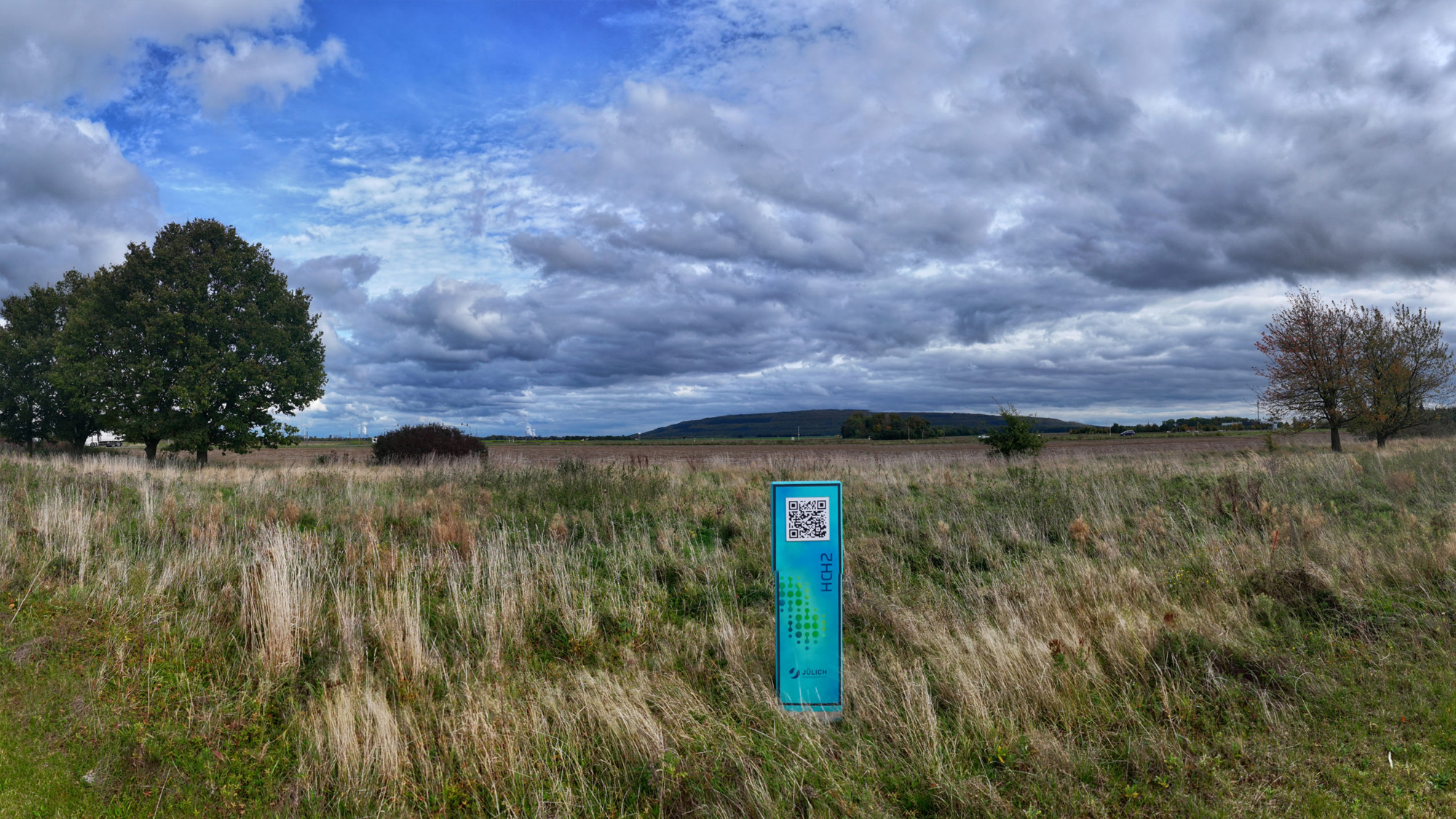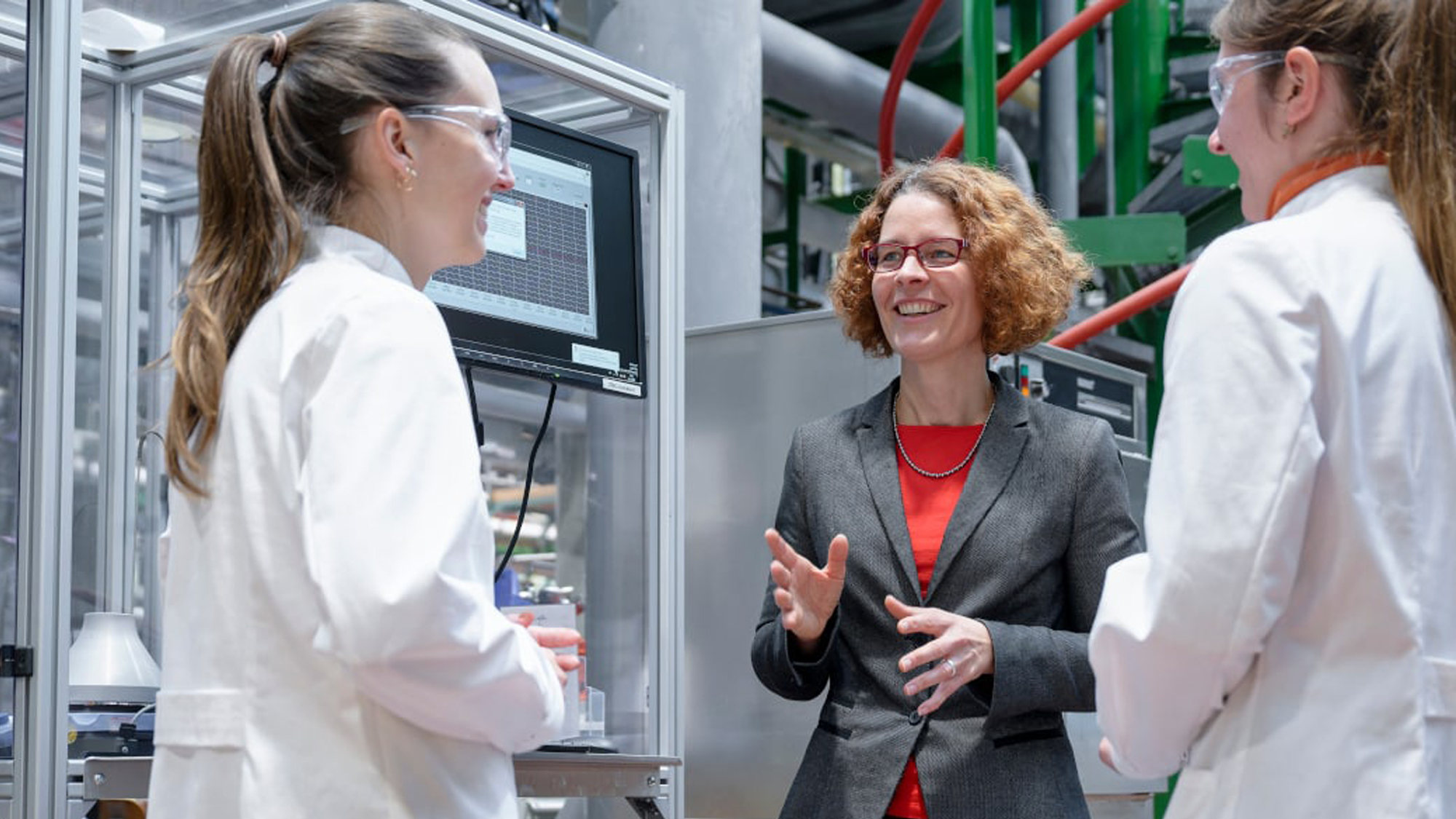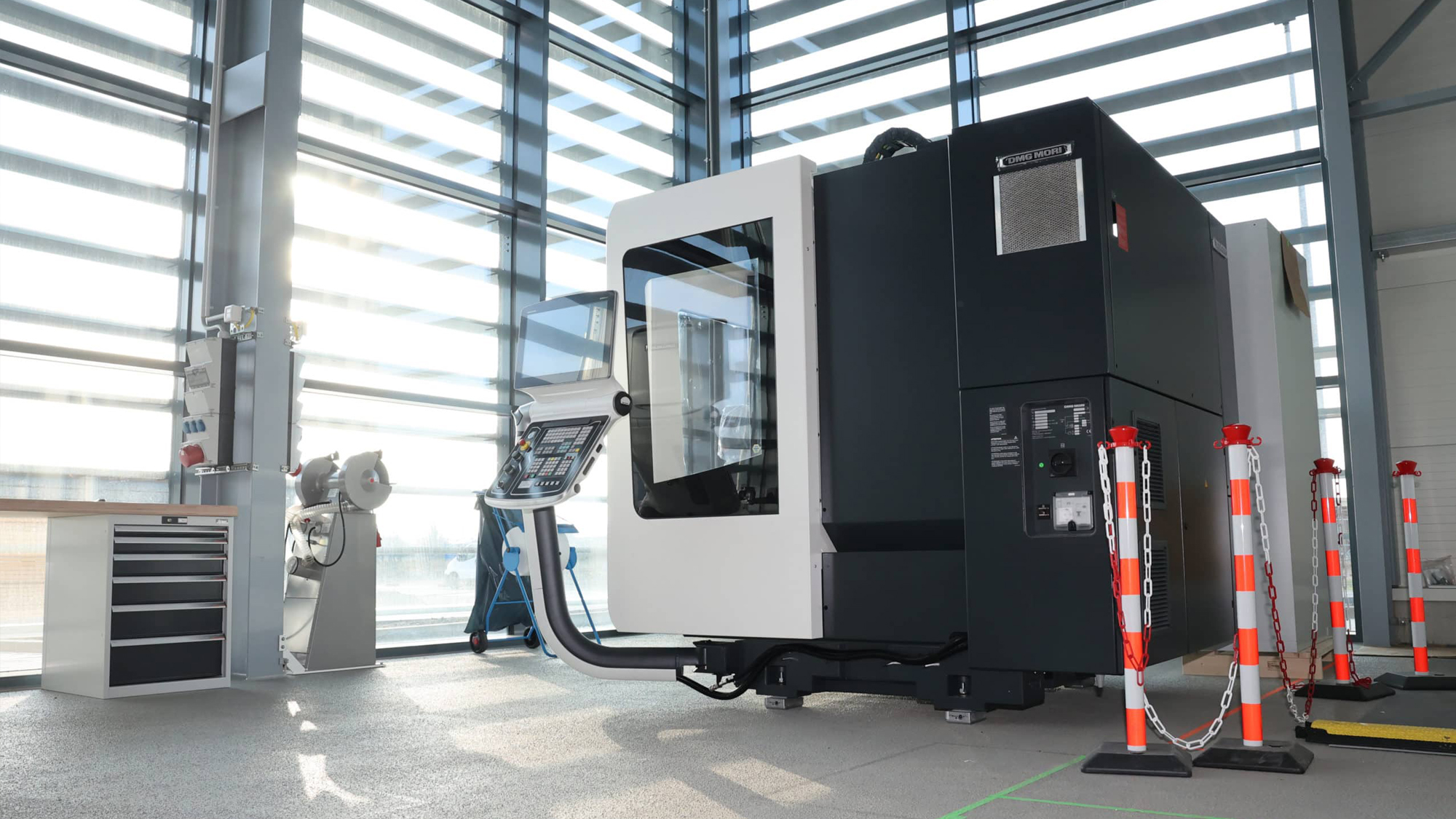Leibniz Prize winner Prof. Peter Wasserscheid appointed founding director
Jülich, November 24, 2021 – The captain is on board. On November 1, Prof. Peter Wasserscheid was appointed founding director of Forschungszentrum Jülich’s newly established Institute for a Sustainable Hydrogen Economy (INW). With its H2 innovation centre, INW will pool the scientific activities in this field and become the innovative core of the Helmholtz Cluster for a Sustainable and Infrastructure-Compatible Hydrogen Economy (HC-H2), which will receive € 860 million in funding over a period of 17 years from the Federal Ministry of Education and Research. In the coming weeks and months, numerous meetings are scheduled to strengthen contact with local authorities, companies, and other stakeholders in the region.
The task of the Helmholtz Hydrogen Cluster HC-H2 is to provide impetus in the course of structural change in order to drive the development of the Rhenish mining area into a model region for hydrogen technologies, together with numerous partners from research and industry. Research is focused on technologies that rely on existing or quick and easy-to-install infrastructures to store and transport hydrogen and that have a clearly recognizable market potential for the energy transition in Germany and worldwide. This should help to rapidly implement the technologies on a large scale.
Copyright: Forschungszentrum Jülich / Sascha Kreklau
“We are delighted that in Prof. Peter Wasserscheid we have gained an outstanding scientist and internationally renowned expert as founding director of INW. I am confident that, thanks to his commitment and innovative approaches, he will succeed in creating an excellent research environment for the development and implementation of pioneering hydrogen storage technologies. These technologies will make a substantial contribution to transforming the Rhenish mining area into a model region for hydrogen technologies, in which pioneering concepts for the hydrogen economy are demonstrated and new jobs are created,” said Prof. Wolfgang Marquardt, Chairman of the Board of Directors of Forschungszentrum Jülich.
Prof. Wasserscheid has been head of the Institute of Chemical Reaction Engineering at Friedrich-Alexander-Universität Erlangen-Nürnberg (FAU) since 2003 and director at the Helmholtz Institute Erlangen-Nuremberg for Renewable Energy (HI ERN), a branch office of Forschungszentrum Jülich, since 2014. In 2006, Wasserscheid was awarded the Gottfried Wilhelm Leibniz Prize for his research. He has always been particularly interested in the practical application of his scientific findings, which is why he has already developed numerous spin-offs and industrial collaborations.
INW will pool the scientific activities in this field within the H2 innovation centre of the Helmholtz Hydrogen Cluster HC-H2, where Forschungszentrum Jülich will bring its broad expertise with hydrogen to bear and connect with partners. Research at INW will focus on chemical hydrogen storage technologies using liquid and easily liquefiable hydrogen carriers that can be handled in a similar way to conventional fossil fuels. For example, hydrogen can be stored in the form of methanol or other alcohols, such as ammonia.
The cluster will also focus on optimizing and scaling up LOHC technology. This involves binding hydrogen to liquid organic carriers. These carriers can be transported using tankers and stored in tank depots, for example. This means that the existing infrastructure for liquid fuels can continue to be used.
Research at INW will be conducted in at least four research fields, ranging from the nano- to the mesoscale and from the reactor to the system scale. The proposed structure is due to the fact that the materials, equipment, and processes concerned must be investigated and developed on very different length and time scales, ranging from extremely fast processes (e. g. on catalytic interfaces) to issues associated with the system stability of an entire network of facilities, which must be ensured over the course of years.
The Infrastructure and Scientific Coordination department at the newly established institute will also function as an office for the Helmholtz Hydrogen Cluster HC-H2, for example for the development of demonstration projects or networking. After all, the Helmholtz Hydrogen Cluster will not only conduct research into innovative technologies for the production, logistics, and use of green hydrogen, but also demonstrate them on a large scale. The most promising developments will be implemented in demonstration projects together with partners from industry, academic cooperation partners, associations, and local authorities in the Rhenish mining area.
The bulk of the work at INW will take place outside the campus of Forschungszentrum Jülich. To allow the relevant partners of the Helmholtz Hydrogen Cluster – who hail from research, industry, associations, and local authorities – to easily come together in the same space, INW will be built in the town of Jülich’s Brainergy Park, which is currently under construction. As part of a series of meet and greets, the new founding director will come together with stakeholders in the region in the coming weeks and months to discuss common interests and potential related to the hydrogen economy. This includes meetings with mayors from the Rhineland, regional district administrators, companies from the business sector and industry, and other stakeholders.
The copyright for the images used on this website is held by Forschungszentrum Jülich, aligator kommunikation GmbH and
stock.adobe.com.
